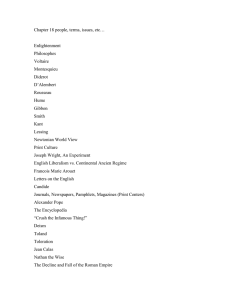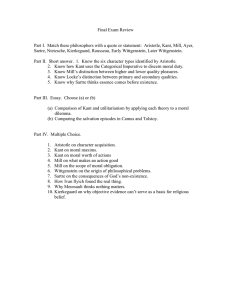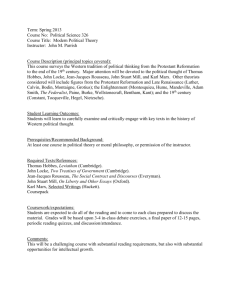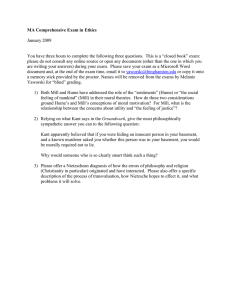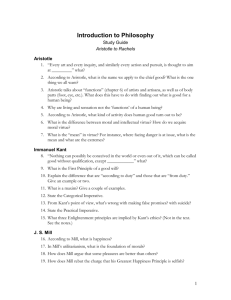Uploaded by
deepakvirmani1111
Freedom: Rousseau, Kant, Mill - Philosophical Perspectives
advertisement
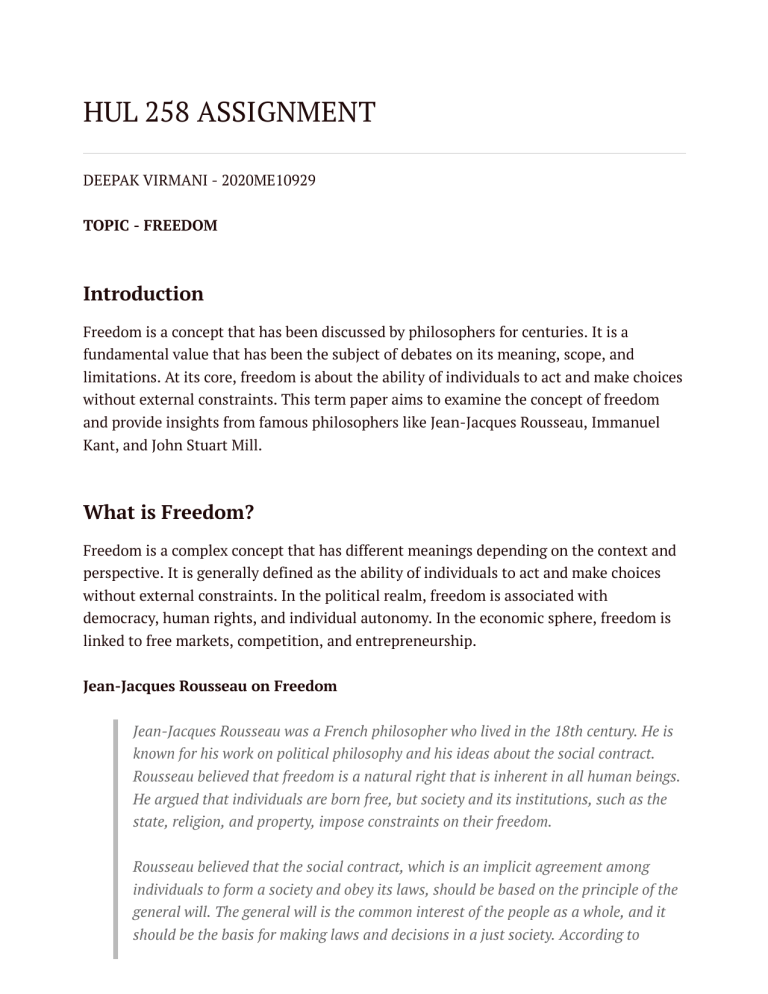
HUL 258 ASSIGNMENT DEEPAK VIRMANI - 2020ME10929 TOPIC - FREEDOM Introduction Freedom is a concept that has been discussed by philosophers for centuries. It is a fundamental value that has been the subject of debates on its meaning, scope, and limitations. At its core, freedom is about the ability of individuals to act and make choices without external constraints. This term paper aims to examine the concept of freedom and provide insights from famous philosophers like Jean-Jacques Rousseau, Immanuel Kant, and John Stuart Mill. What is Freedom? Freedom is a complex concept that has different meanings depending on the context and perspective. It is generally defined as the ability of individuals to act and make choices without external constraints. In the political realm, freedom is associated with democracy, human rights, and individual autonomy. In the economic sphere, freedom is linked to free markets, competition, and entrepreneurship. Jean-Jacques Rousseau on Freedom Jean-Jacques Rousseau was a French philosopher who lived in the 18th century. He is known for his work on political philosophy and his ideas about the social contract. Rousseau believed that freedom is a natural right that is inherent in all human beings. He argued that individuals are born free, but society and its institutions, such as the state, religion, and property, impose constraints on their freedom. Rousseau believed that the social contract, which is an implicit agreement among individuals to form a society and obey its laws, should be based on the principle of the general will. The general will is the common interest of the people as a whole, and it should be the basis for making laws and decisions in a just society. According to Rousseau, individual freedom is not absolute, but it is limited by the general will. The general will ensures that individual freedom is not used to harm others or to undermine the common good. Immanuel Kant on Freedom Immanuel Kant was a German philosopher who lived in the 18th century. He is known for his work on ethics, metaphysics, and epistemology. Kant believed that freedom is a fundamental concept that is necessary for morality and human dignity. He argued that freedom is not a natural right, but it is a necessary condition for the moral law. Kant believed that freedom is the ability of individuals to act according to the moral law, which is a universal principle that applies to all rational beings. He argued that the moral law is based on the principle of autonomy, which is the ability of individuals to legislate their own moral principles. According to Kant, individual freedom is not limited by external constraints, but it is self-imposed by the moral law. John Stuart Mill on Freedom John Stuart Mill was a British philosopher who lived in the 19th century. He is known for his work on political philosophy, ethics, and economics. Mill believed that freedom is a fundamental value that is necessary for human flourishing and the progress of society. He argued that individual freedom is essential for creativity, innovation, and diversity of ideas. Mill believed in the principle of harm, which states that the only purpose for which power can be rightfully exercised over any member of a civilized community is to prevent harm to others. According to Mill, individual freedom should be limited only when it harms others or when it poses a threat to public safety and order. He believed that individuals should have the freedom to express their opinions, pursue their own interests, and live according to their own preferences, as long as they do not harm others. Conclusion In conclusion, freedom is a complex concept that has been discussed by philosophers for centuries. Jean-Jacques Rousseau believed that individual freedom should be limited by the general will, Immanuel Kant argued that individual freedom is self-imposed by the moral law, and John Stuart Mill believed that individual freedom is essential for human flourishing and the progress of society. Despite their differences, these philosophers
